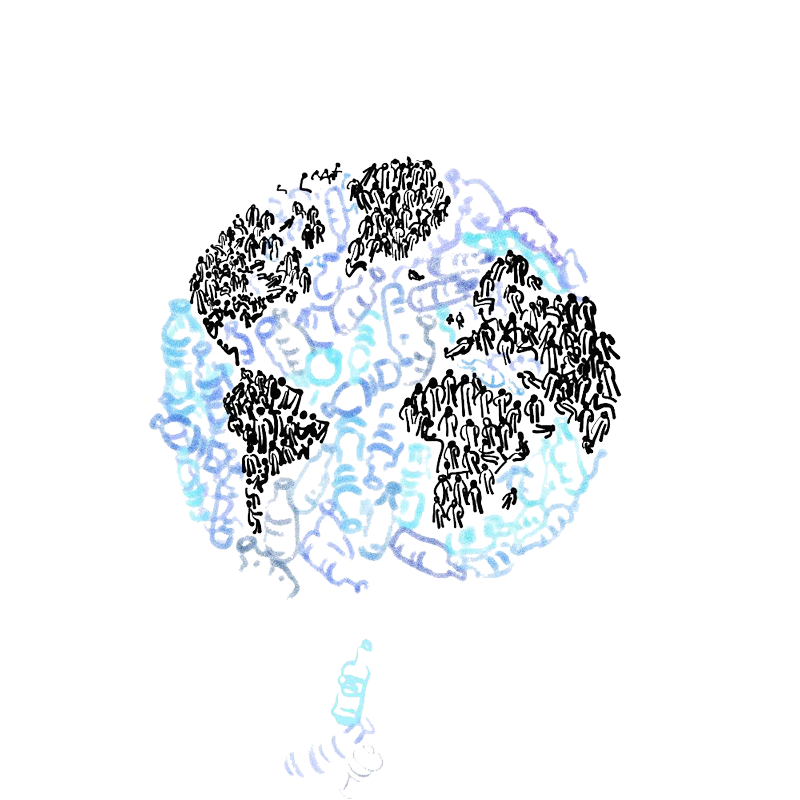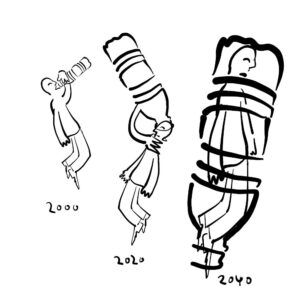
Whether you are Conservative or Liberal, Stopping the Climate Crisis must be a Consensus | Uri Angel

Who is responsible for protecting our environment? One side seems to have a monopoly on environmental values. Dealing with the climate crisis has quickly evolved into an ideological debate. I propose to examine whether there is a contradiction between dealing with climate change and standard right-wing views, in relation to the Jewish canon and the free market. Can the climate crisis help bridge the gap between the two parties instead of causing division?
The Jewish canon has an abundance of guidelines regarding safeguarding God’s creations. In the Midrash of the Land of Israel, Ecclesiastes Rabbah, it is written, " Pay attention that you do not corrupt and destroy My world: if you corrupt it, there is no one to repair it after you" (Ecclesiastes Rabbah 7:13:1). In the current era, Martin Buber claims that just as the world was created by speech, creation is also the constant verbal communication between of God and humankind. According to Buber we must listen to God through his creations. Rabbi Shimshon Raphael Hirsch, in the book Horev, preached that we must preserve the creation due to their divinity, and as a direct derivative of the value of justice. The Torah itself is chock full of innumerable references of protecting nature, from the prohibition of "you must not destroy its trees" (Deuteronomy 20:19), and the simple guidance “to till it and tend it" (Genesis 2:15) already in the second chapter of the Bible. Man must be worthy to settle the land. “For dust you are,
And to dust you shall return”.
To begin to discuss the environmental problem, we must agree that the planet is becoming hotter. This fact is agreed upon by 97% of climate experts, and is reflected in reports from various sources, the Bank of Israel, the Ministry of the Environment, the IMF, the World Economic Forum and the Meteorological Organization. What are the consequences of the planet becoming hotter? Is the Earth Coming to an End? Of course not. The main consequence is that it will be detrimental to humans populating the earth and for our future generations.
The right-wing view, which favors a free market, strives to reduce government intervention in its role as a "night-watchman state". That is, to safeguard the residents and to ensure the commitments between them. On this line of thought, it is necessary for the government to intervene when greenhouse gases are emitted into the air. When two people trade a polluting product, a third person (or more) is harmed, economists refer to this situation as "externality". A variety of externalities keep the market away from the optimal mode. In situations involving "externality", not all cost is embodied in the price of the product. For example, the contamination is being “paid” for by individuals who did not consent the transaction. Emitting greenhouse gases is equivalent to harming the residents the state is responsible for, even in its limited role.
Economists offer a variety of solutions to form an incentive system that overcomes externalities. First, we can internalize the environmental price of a product based on the principle "the polluter pays" (Pygovian tax). Second, facilitating class actions that companies will have to recognize the environmental price of their actions. In addition, determining carbon quotas can help control emissions. All of these contain disadvantages, but they create an incentive system that leads to a truly optimal market situation.
We need to make a cost-benefit calculation in the face of the climate crisis. The problem is this calculation is not embodied in most countries’ future plans. There is a price to stopping the development of polluting fuels; however, the rising sea levels, fires, floods, droughts, climate change and disabling public life in the heat waves that will hit many areas – is estimated at a much higher cost.
The rhetoric of climate organizations resembles a type of global language that tends to try and force a connection to other perceptions, such as peace at all costs, socialism and opposition to industry with no difference between utility considerations and private ideology. The same linkage distances the right, but this rhetoric should not prevent us from thinking about what is right for us and our children.
The religious and the right-wing, many more than in the past, are dealing with the climate problem. The attribution of the climate problem to a certain party is incorrect. The tendency to think that there is a contradiction between dealing with the climate crisis and carrying out right-wing values like the Jewish bookcase and the free market is baseless. This year is the year of the shemita, there is no other mitzvah that so clearly and unequivocally expresses the importance of the needs of the land in the eyes of God. Dealing with the climate crisis is not only the most striking issue of our time, but might also be an opportunity to bridge the gap between tribes in this time of controversy, out of the common mission of doing good and repairing the world (‘Tikon Olam’).


